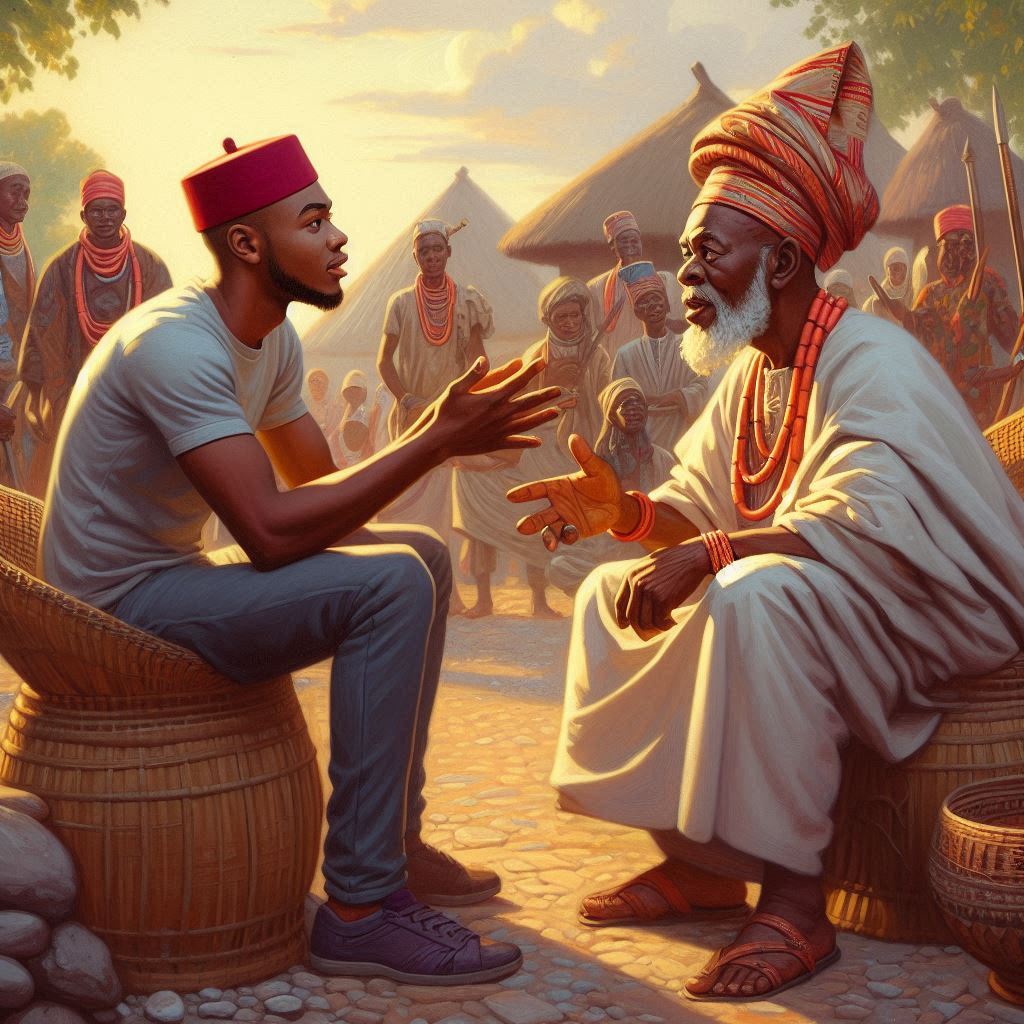Introduction
Nigeria boasts a rich linguistic diversity, with over 500 languages spoken across its vast regions. Preserving and revitalizing these languages is crucial for maintaining cultural heritage.
Indigenous languages carry the essence of identity, history, and traditions, reflecting the uniqueness of various ethnic groups. However, the survival of these languages faces significant challenges.
Colonization, globalization, and urbanization have significantly contributed to the decline of indigenous languages in Nigeria. During the colonial period, English became the dominant language of education, governance, and business.
This shift marginalized many native languages, leading to their gradual erosion.
Globalization and urbanization further exacerbated this trend, as English and other foreign languages took precedence in daily life and professional settings.
The thesis of this discussion centers on the pivotal role community efforts play in revitalizing Nigerian languages.
Community-driven initiatives are essential for reversing language decline and ensuring the survival of indigenous tongues for future generations.
By fostering a sense of ownership and pride in local languages, communities can spearhead meaningful change.
The Importance of Preserving Nigerian Languages
Preserving Nigerian languages is vital for cultural preservation and identity. Languages are repositories of collective knowledge, wisdom, and cultural practices.
They encapsulate the worldview of a people, including their values, customs, and oral traditions. Losing a language means losing a part of the cultural heritage it represents.
Moreover, language preservation promotes social cohesion and inclusion. When people communicate in their native tongues, they maintain stronger connections with their roots and each other.
This fosters a sense of belonging and community solidarity, which is crucial for societal harmony.
Factors Contributing to Language Decline
Colonization profoundly impacted Nigeria’s linguistic landscape. The British colonial administration imposed English as the official language, sidelining indigenous languages.
This imposition created a hierarchy that favored English speakers, pushing native languages to the fringes.
Globalization has also played a role in diminishing the use of Nigerian languages. The dominance of English in global communication, media, and technology has made it the preferred language for many Nigerians.
This preference often comes at the expense of local languages, which are deemed less prestigious or useful.
Urbanization has further accelerated language decline. In urban areas, diverse populations converge, often adopting a lingua franca for ease of communication.
This shift leads to reduced usage of native languages among younger generations, who grow up in multilingual environments dominated by English.
Community Efforts in Revitalizing Languages
Community efforts are crucial for revitalizing Nigerian languages. Grassroots initiatives can create impactful and sustainable change. Language classes, cultural festivals, and storytelling sessions can revive interest and proficiency in indigenous languages.
Local communities can establish language preservation programs in schools, encouraging children to learn and use their native languages.
Community leaders and elders can also play a significant role by passing down oral traditions and histories in the local tongue.
Technology and media can support these efforts. Creating digital content, such as apps, podcasts, and online courses, can make learning indigenous languages accessible and engaging.
Social media platforms can amplify these initiatives, reaching wider audiences and fostering a sense of community among speakers.
Generally, preserving and revitalizing Nigerian languages is a shared responsibility. Community efforts are indispensable in reversing the decline of indigenous languages.
By embracing and promoting their linguistic heritage, Nigerians can ensure that their languages thrive for future generations.
Through collective action and innovative approaches, the rich linguistic diversity of Nigeria can be preserved and celebrated.
The role of schools and educational institutions
When it comes to revitalizing Nigerian languages, schools and educational institutions play a crucial role in ensuring the preservation and promotion of indigenous languages.
Incorporating Nigerian languages into the curriculum is essential for the revitalization efforts.
Importance of incorporating Nigerian languages into the curriculum
- Preservation of cultural heritage: By including Nigerian languages in the curriculum, schools help preserve the cultural heritage of the country.
- Promotion of linguistic diversity: Teaching indigenous languages in schools promotes linguistic diversity and fosters a sense of inclusivity among students.
- Improved cognitive development: Studies have shown that learning multiple languages can enhance cognitive abilities and critical thinking skills.
- Enhanced communication: Proficiency in Nigerian languages can improve communication within communities and strengthen social bonds.
Successful initiatives in schools that promote the teaching and learning of indigenous languages
- Language immersion programs: Some schools have implemented language immersion programs where students are taught exclusively in Nigerian languages for a certain period.
- Cultural exchange programs: Schools organize cultural exchange programs that expose students to different Nigerian languages and traditions, fostering an appreciation for linguistic diversity.
- Community partnerships: Collaborating with local communities and native speakers helps schools create authentic language learning experiences for students.
- Use of technology: Incorporating technology in language teaching can make learning more interactive and engaging for students, keeping them motivated to learn Nigerian languages.
Challenges faced by schools in implementing language revitalization programs
- Lack of resources: Schools often face challenges in terms of resources such as qualified language teachers, teaching materials, and funding to support language revitalization programs.
- Curriculum constraints: The existing curriculum may not prioritize the teaching of Nigerian languages, making it difficult for schools to allocate time and resources to language revitalization efforts.
- Low student interest: Some students may not see the value in learning indigenous languages, leading to low enrollment in language classes and limited participation in language revitalization programs.
- Parental attitudes: Parents’ attitudes towards indigenous languages can influence students’ interest and motivation to learn, creating a barrier to language revitalization efforts in schools.
In general, schools and educational institutions play a critical role in revitalizing Nigerian languages by incorporating them into the curriculum and implementing initiatives that promote the teaching and learning of indigenous languages.
Despite facing challenges, schools can overcome these obstacles through partnerships, innovative teaching methods, and community engagement to ensure the preservation and promotion of Nigerian languages.
Read: How to Start a Private Psychology Practice in Nigeria
Community language preservation projects
Community-driven language preservation projects play a crucial role in revitalizing Nigerian languages that are at risk of extinction.
These initiatives are often spearheaded by passionate individuals and organizations dedicated to preserving the linguistic heritage of Nigeria. Let’s delve into some of the diverse projects that are making a significant impact.
Profiles of community-driven projects
One prominent example is the “Save Our Languages” initiative, led by a group of young language enthusiasts in Lagos.
This project aims to document and digitize endangered Nigerian languages, creating online resources for language learners and researchers.
Through interactive workshops and community events, the initiative has successfully raised awareness about the importance of preserving linguistic diversity in Nigeria.
Another notable project is the “Mother Tongue Matters” campaign, which targets primary schools in rural communities across Nigeria.
The project helps teachers integrate local languages into the classroom curriculum, promoting bilingual education and fostering pride in linguistic heritage.
By incorporating interactive storytelling and music into language lessons, “Mother Tongue Matters” has enriched the learning experience for students and revitalized interest in indigenous languages.
Impact on local communities and society
These community-driven language preservation projects have had a profound impact on both local communities and Nigerian society as a whole.
By revitalizing endangered languages, these initiatives are preserving cultural heritage and strengthening social cohesion.
In communities where indigenous languages are being revitalized, there is a renewed sense of pride and identity among residents.
Children are growing up bilingual, equipped with the linguistic skills to communicate with their elders and pass down traditional knowledge to future generations.
Furthermore, the revitalization of Nigerian languages has broader societal implications. As more people gain proficiency in their native languages, there is a resurgence of interest in traditional arts, literature, and music.
This cultural renaissance not only enriches Nigerian society but also contributes to the preservation of intangible heritage.
Additionally, by promoting multilingualism, these projects facilitate communication across linguistic barriers and foster inclusivity in a diverse society.
Success stories and best practices
Several success stories have emerged from community language preservation projects in Nigeria, showcasing the effectiveness of these initiatives.
For instance, the “Speak Your Language” campaign in a rural village successfully revived a nearly extinct language through community-led language workshops and storytelling sessions.
This grassroots approach not only revitalized the language but also empowered residents to take pride in their cultural heritage.
Best practices from these initiatives include involving local communities in decision-making processes, tailoring language preservation efforts to the specific needs of each community, and leveraging digital tools to reach a wider audience.
By fostering partnerships with schools, community centers, and cultural organizations, these projects create sustainable networks for language revitalization.
Additionally, documenting oral histories and folklore plays a crucial role in preserving linguistic heritage for future generations.
In short, community-driven language preservation projects are instrumental in revitalizing Nigerian languages and safeguarding cultural heritage.
Through innovative approaches, these initiatives are creating a renewed sense of pride and identity in local communities, fostering linguistic diversity, and strengthening social cohesion.
By sharing success stories and best practices, these projects inspire others to join in the efforts to preserve Nigeria’s rich linguistic heritage for generations to come.
Read: The Future of Psychology Education in Nigeria
Collaboration with cultural institutions
Partnering with Cultural Institutions
Collaborating with cultural institutions is crucial for the preservation and revitalization of Nigerian languages.
Museums, libraries, and cultural centers play a significant role in promoting indigenous languages by providing resources, space, and support for community efforts.
Role of Museums
Museums can serve as valuable partners in language revitalization initiatives. They can showcase exhibits, artifacts, and audiovisual materials that highlight the linguistic diversity of Nigeria.
Museums can also host language workshops, storytelling sessions, and cultural events to engage the community in language preservation activities.
Role of Libraries
Libraries are essential hubs for language documentation and research. They provide access to a wide range of materials, including books, newspapers, and archives that are vital for studying Nigerian languages.
Libraries can collaborate with community groups to organize language classes, storytelling sessions, and reading clubs to promote language learning and appreciation.
Role of Cultural Centers
Cultural centers play a pivotal role in connecting communities with their linguistic heritage. They offer spaces for language classes, cultural performances, and interactive programs that celebrate Nigerian languages.
Cultural centers can partner with community groups to organize language festivals, poetry readings, and art exhibitions that showcase the beauty and richness of Nigerian languages.
Successful Collaborations
There have been several successful collaborations between community groups and cultural institutions that have contributed to the revitalization of Nigerian languages.
Collaborative Language Workshops
Community groups have partnered with museums and libraries to organize language workshops that teach traditional vocabulary, grammar, and pronunciation to participants.
These workshops help to preserve endangered languages and foster intergenerational language transmission.
Language Documentation Projects
Cultural institutions have collaborated with linguists and community members to document endangered languages through audio recordings, transcriptions, and translations.
These language documentation projects help to create a repository of linguistic data that can be used for language revitalization efforts.
Interactive Language Exhibits
Museums and cultural centers have developed interactive language exhibits that engage visitors in language learning activities.
These exhibits include language games, multimedia displays, and hands-on workshops that immerse participants in the sounds and words of Nigerian languages.
In essence, collaboration with cultural institutions is essential for the revitalization of Nigerian languages.
By partnering with museums, libraries, and cultural centers, community groups can preserve and promote indigenous languages for future generations to cherish and celebrate.
Read: Psychological Impact of COVID-19 on Nigerians

Learn More: Famous Nigerian Musicians with Music Degrees
Uncover the Details: Best Resources for Learning European Languages in Nigeria
Use of Technology in Language Revitalization
The Role of Technology in Preserving and Promoting Nigerian Languages
Technology plays a crucial role in preserving Nigerian languages. It bridges gaps in resources and accessibility. Digital platforms provide avenues for documentation and dissemination.
Mobile apps, websites, and social media platforms are powerful tools. They enable communities to share and learn their languages efficiently.
Technology ensures that these languages remain accessible to younger generations. The internet offers a vast repository for language materials. It allows for the preservation of cultural and linguistic heritage.
Digital Tools and Resources Supporting Language Learning and Preservation
Several digital tools support language learning and preservation efforts. Mobile apps like Duolingo and Memrise include Nigerian languages.
These apps offer interactive language courses. Users can practice speaking, listening, reading, and writing. Websites dedicated to Nigerian languages provide valuable resources.
Sites like YorubaName.com document names and their meanings. Social media platforms facilitate community engagement and knowledge sharing. Facebook groups and YouTube channels host language tutorials and discussions.
Online dictionaries and translation services are vital resources. They offer immediate access to vocabulary and grammar rules. Wikipedia, for instance, has articles in various Nigerian languages.
Audio and video recordings help capture native speakers’ pronunciations. These recordings are essential for accurate language learning. Podcasts and online radio stations broadcast in indigenous languages.
They reach a wide audience, promoting daily use and comprehension.
Challenges and Limitations of Using Technology in Language Revitalization
Despite its benefits, using technology for language revitalization presents challenges. Access to digital devices and the internet is not universal. Rural areas often lack the necessary infrastructure.
This digital divide limits the reach of technological solutions. Additionally, there is a scarcity of quality content in many Nigerian languages. Creating comprehensive and accurate language resources is time-consuming and costly.
Transform Your Career with Expert Guidance
Get personalized mentorship consulting that’s tailored to your unique path. Our expert advice is actionable and exclusive.
Get StartedTechnological literacy is another significant barrier. Older generations may find it difficult to use digital tools. This generational gap can hinder the transmission of language knowledge.
Moreover, the focus on widely spoken languages can marginalize smaller ones. Many digital platforms prioritize major languages over lesser-known ones. This trend risks further endangering already vulnerable languages.
Funding and sustainability are also critical concerns. Developing and maintaining digital resources requires substantial investment. Non-profit initiatives may struggle to secure consistent funding.
Without financial support, many projects cannot sustain long-term operations. Collaboration between government, private sector, and communities is essential. Joint efforts can help address these financial and logistical challenges.
In a nutshell, technology offers immense potential for revitalizing Nigerian languages. It facilitates preservation, learning, and dissemination on a broad scale.
Digital tools and resources support these efforts significantly. However, challenges like accessibility, content quality, and funding must be addressed.
By overcoming these hurdles, technology can play a transformative role. It can ensure that Nigerian languages thrive for generations to come.
Read: How Nigerian Schools Address Student Psychology
Explore Further: Top Fashion Schools and Programs in Nigeria
Advocacy and policy support
In revitalizing Nigerian languages, advocacy and policy support play a crucial role. Advocacy efforts are essential for raising awareness about the importance of preserving and revitalizing indigenous languages.
They help garner public support and bring attention to the unique cultural heritage embedded in these languages. Additionally, advocacy campaigns can mobilize resources, both financial and human, to support language revitalization initiatives.
Importance of advocacy and policy support
Advocacy is key to ensuring that Nigerian languages are given the attention they deserve. It helps in challenging the stigma associated with indigenous languages and promotes a positive attitude towards their use.
Moreover, advocacy can influence policymakers to prioritize language preservation and revitalization in national agendas.
Role of government policies and legislation
Government policies and legislation play a significant role in promoting language diversity and preservation.
They can provide funding for language revitalization programs, incorporate indigenous languages into educational curricula, and establish language protection laws.
By enacting supportive policies, governments can create an enabling environment for the survival and thriving of Nigerian languages.
Advocacy campaigns and organizations
Various advocacy campaigns and organizations are actively engaged in supporting language revitalization efforts in Nigeria.
These groups conduct awareness-raising activities, lobby for language-friendly policies, and collaborate with communities to preserve linguistic diversity.
Some notable organizations include the Center for Research and Documentation on World Language Problems (CRDOWLP), Language Development and Documentation Network (LangDev), and the Society for Nigerian Language (SNL).
In review, advocacy and policy support are essential components in the revitalization of Nigerian languages. They play a crucial role in raising awareness, influencing decision-makers, and mobilizing resources for language preservation efforts.
By continuing to advocate for the importance of linguistic diversity and by enacting supportive policies, Nigeria can ensure the sustainability of its rich language heritage for future generations.
You Might Also Like: Traditional vs. Contemporary Nigerian Arts
See Related Content: Top Economic Journals and Publications in Nigeria
You Might Also Like: Best Resources for Learning Arabic in Nigeria
Conclusion
Recap of the Importance of Community Efforts in Revitalizing Nigerian Languages
Community efforts are crucial in revitalizing Nigerian languages. Local engagement brings cultural pride and reinforces identity among speakers.
Initiatives like language classes, storytelling sessions, and cultural festivals foster a sense of belonging. Grassroots movements create awareness about the value of linguistic diversity.
By focusing on community-driven projects, we ensure the preservation of linguistic heritage. Such efforts empower speakers to use their languages confidently in daily life.
Community-led revitalization fosters intergenerational transmission, crucial for language sustainability. Each community’s active participation strengthens Nigeria’s rich tapestry of languages.
The Need for Continued Support and Collaboration
Ongoing support and collaboration are essential to preserve Nigeria’s linguistic heritage. Government policies must prioritize language preservation and education.
Schools should incorporate local languages into their curricula. Funding for language projects ensures the development of learning resources.
Collaboration between communities and linguists enhances documentation efforts. Technology can play a significant role in language revitalization.
Mobile apps, online dictionaries, and social media platforms can promote language use. Partnerships with NGOs and cultural organizations can provide additional resources and expertise.
Sustained efforts are necessary to combat the threat of language extinction. Collective action ensures that future generations can connect with their linguistic roots.
Call to Action for Individuals and Communities
Individuals and communities must actively participate in language revitalization initiatives. Speak your language at home and in social settings.
Teach children and young people the value of their mother tongue. Organize and attend language classes, workshops, and cultural events.
Support local authors and media producing content in Nigerian languages. Advocate for language rights and policies that protect linguistic diversity.
Share resources and knowledge with others in your community. Utilize technology to create and share language learning tools.
Encourage schools to teach and celebrate local languages. Every effort counts in keeping Nigeria’s linguistic heritage alive.
Emphasize the Urgency of Action
The time to act is now. With each passing generation, languages risk becoming dormant. Immediate efforts can reverse this trend and rejuvenate our linguistic heritage.
Communities must recognize their pivotal role in this mission. By joining hands, we can create a vibrant, multilingual Nigeria. Let us celebrate and preserve our rich linguistic diversity together.
Your involvement can make a significant difference. Start today and contribute to the future of Nigerian languages. Together, we can ensure that these languages thrive for generations to come.




